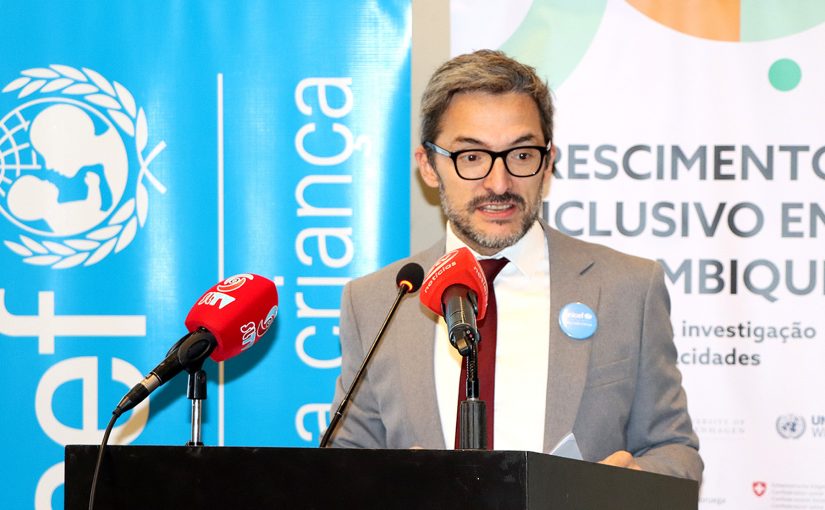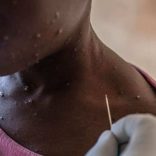Mpox: Mozambique strengthens border surveillance; suspected cases in 9 provinces
Mozambique: About 13M children living in poverty – Unicef

Photo: UNICEF Moçambique /X
Around 13 million Mozambican children, out of a total population of over 16 million, live in poverty, according to a report released on Monday by the United Nations Children’s Fund (Unicef), which also points to “deep inequalities”.
“Despite progress in some areas, child poverty in Mozambique continues to affect an unacceptably high number of girls and boys. About 77% of children live in poverty, whether monetary, multidimensional or both,” said Yannick Brand, deputy representative of the United Nations agency in Mozambique, during the launch in Maputo of the latest report on multidimensional child poverty in Mozambique.
He pointed to the existence of “deep inequalities” in Mozambique, both territorial and structural, which mean that some children continue to live in “significantly more unfavourable” conditions, with rural poverty approximately “three times higher than urban poverty”.
“Child poverty is more than a lack of resources. It compromises access to education, health, adequate nutrition, protection and the right to a full childhood and inevitably compromises the sustainable development of the country,” said Yannick Brand.
According to the representative of the United Nations agency, of the approximately 16.4 million children in Mozambique, 70.3% live in consumption poverty and 41.3% suffer deprivation in various dimensions “essential to their well-being”, with “one in three children living in simultaneous poverty”.
The report points to the crisis caused by the hidden debts scandal, the Covid-19 pandemic, climate shocks and conflict-related shocks as some of the factors that have contributed to the increase in child poverty in Mozambique.
In view of these disparities, Yannick Brand advocates the promotion of integrated responses that accompany children from early childhood to adolescence, the strengthening of social protection and resilience mechanisms, and the consolidation of the production and use of evidence as a basis for the planning, monitoring and evaluation of child-centred public policies.
“This report is, above all, a call for collective responsibility. May it inspire the development of more inclusive policies, strengthen our commitment to children and serve as a catalyst for concrete action,” he concluded, reaffirming Unicef’s commitment to the Mozambican Government and to “every child”, with the aim of “reducing child poverty in all its forms”.
“A pobreza infantil compromete o acesso à educação, à saúde, à nutrição adequada, à protecção e ao direito a uma infância plena. E compromete, inevitavelmente, o desenvolvimento sustentável de #Moçambique” – @YannickUNICEF. pic.twitter.com/HPb3Q8x17I
— UNICEF Moçambique (@UNICEF_Moz) May 26, 2025












Leave a Reply
Be the First to Comment!
You must be logged in to post a comment.
You must be logged in to post a comment.